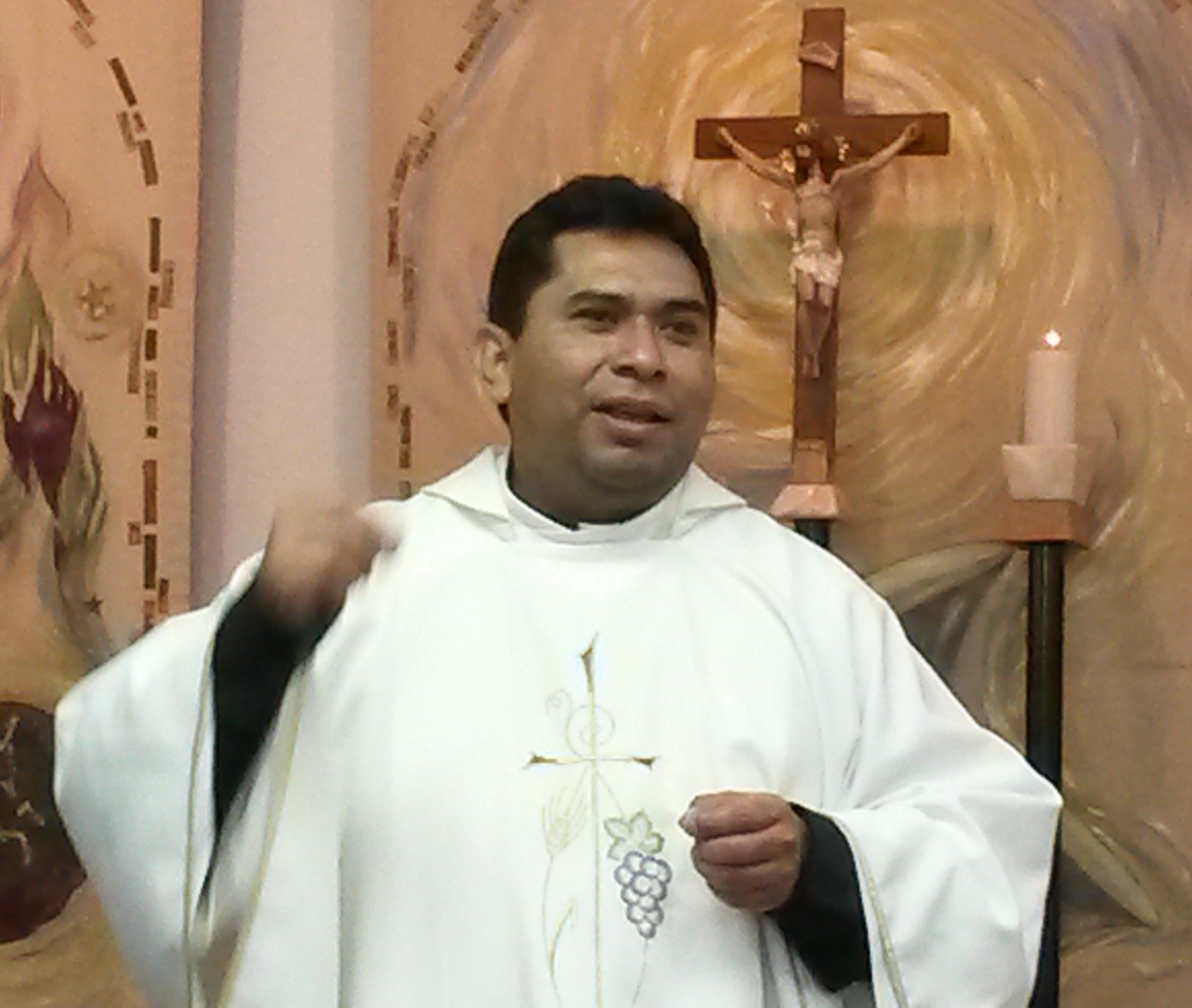 SOLEMNITY OF CORPUS CHRISTI
SOLEMNITY OF CORPUS CHRISTI
DO THIS IN MEMORY OF ME!
By our Pastor, Fr. Carmelo Jiménez
The Eucharist and the priesthood are instituted with the exact same words: Do this in memory of me! We could ask a few questions about the origins of these sacraments: What? Who? We know the answers: the EUCHARIST, the priests.
In April of 1999, when I was about to be ordained a priest, my mother was in the hospital and was gravely ill. I remember talking with my brothers and sisters about the possibility of my mother dying on the day of my ordination. I asked them that if that happened they would give me permission to go be ordained and celebrate the Eucharist (my first mass) for my mom. They all agreed, so even though no one would be with me, that is what I had planned to do.
I was sure that: “When Christ came as high priest of the good things that have come to be, passing through the greater and more perfect tabernacle not made by hands, that is, not belonging to this creation, he entered once for all into the sanctuary, not with the blood of goats and calves but with his own blood, thus obtaining eternal redemption.” (Heb. 9:11-12) I wanted that precious blood of Christ to give life to my mother, the life that no one else can offer us, and that we can only obtain through Christ and it is offered for those who receive it in the Eucharist.
In the first reading we hear: “Taking the book of the covenant, he read it aloud to the people, who answered, ‘All that the LORD has said, we will heed and do.’ Then he took the blood and sprinkled it on the people, saying, ‘This is the blood of the covenant that the LORD has made with you in accordance with all these words of his.’” (Ex. 24:7-8) The covenant that God establishes with man is not between equals but rather a superior to an inferior. It is the covenant that contains the commitment from the superior to defend and protect the inferior and they, for their part, commit to obeying, respecting and not betray the covenantal pact. The covenant lifts up the inferior to the category of “friend” of the superior, who grants the inferior the privilege of this friendship. The result is an offering of friendship and the closest and most profound communion one can offer. It is given freely and needs to be guaranteed by both parties. God gives his word to Moses to be transmitted to the people and keeps his word; man should do his part as well. The seal of this profound commitment is visualized in the blood. Life is in the blood. Lives are committed in the covenant, and consequentially a communion that is vital and not fleeting is formed.
Saint Mark in his gospel offers us the most ancient narration of the Last Summer and the institution of the Eucharist: “While they were eating, he took bread, said the blessing, broke it, gave it to them, and said, ‘Take it; this is my body.’ Then he took a cup, gave thanks, and gave it to them, and they all drank from it. He said to them, ‘This is my blood of the covenant, which will be shed for many. Amen, I say to you, I shall not drink again the fruit of the vine until the day when I drink it new in the kingdom of God.’” (Mk. 14:22-26) It is not a part of his being that Jesus surrenders to us rather the totality of the human and divine being of Jesus. After the institution of the Eucharist when believers celebrate his “memory” in the sacrament, we are participating in the joyful experience of a personal encounter with Him. However, the theology reflects deeply on how to understand the words of Jesus. The result is that in the Eucharistic Bread Jesus is giving of himself in communion of life for all. Moreover, the first meaning of these words in Saint Mark’s gospel expresses intensely the sense of communion and reunion. It is the sequence which affirms: “Sight has failed, not thought conceives, but a dauntless faith believes, Resting on a power divine.”
Celebrating the memory of Jesus is not just a simple calling to mind, rather a living presence that urges us to move forward. And this is the testimony before the world that evangelizes: a testimony of a firm hope, of authentic communion, of a joyful and generous solidarity. All of us who participate in the same Bread and the same Chalice, who have the same destiny, should be a credible sign for our world which is so divided by complex interests and little solidarity. May the Body and Blood of Christ give us the strength for our journey in following and fulfilling his will.